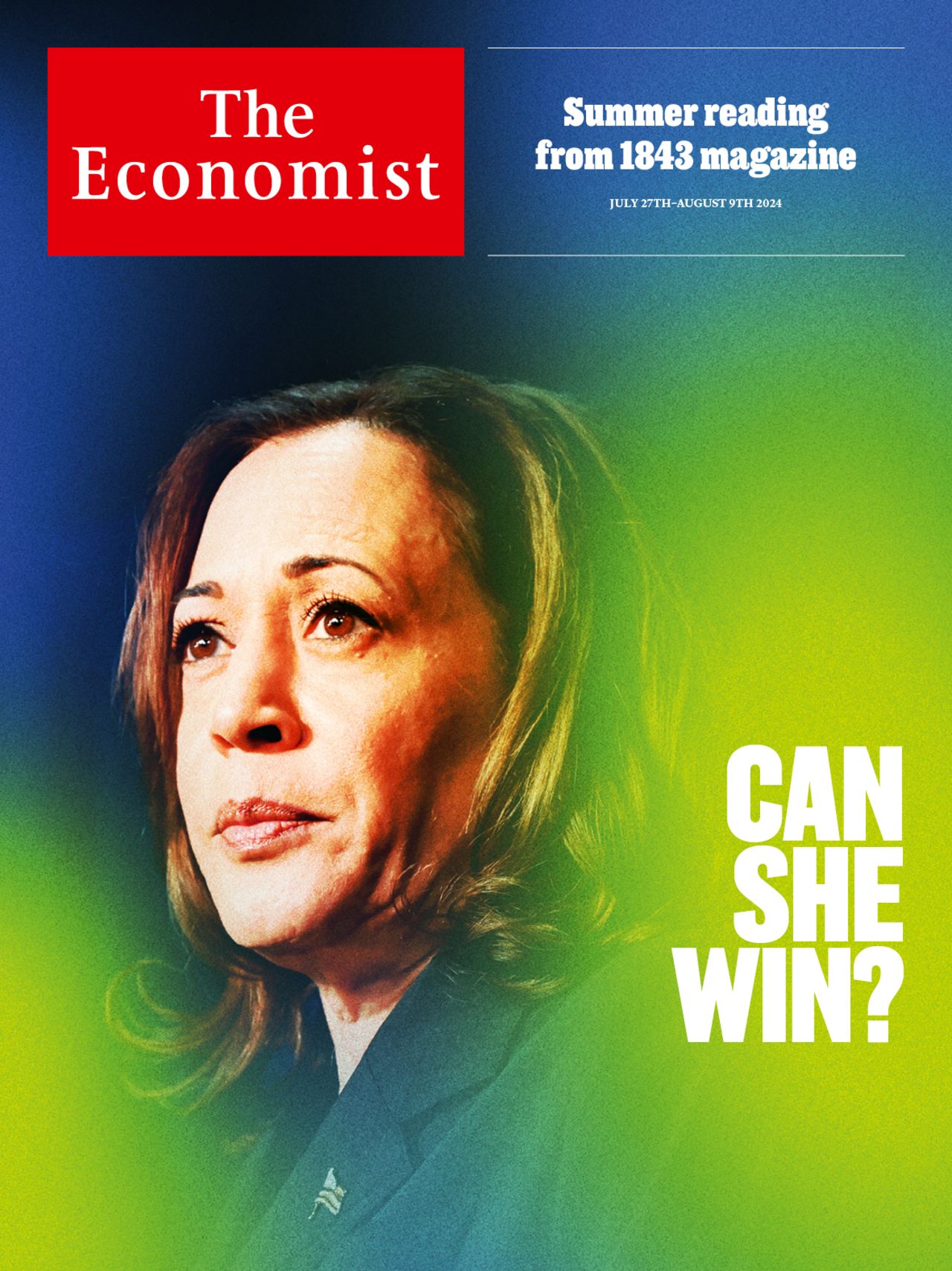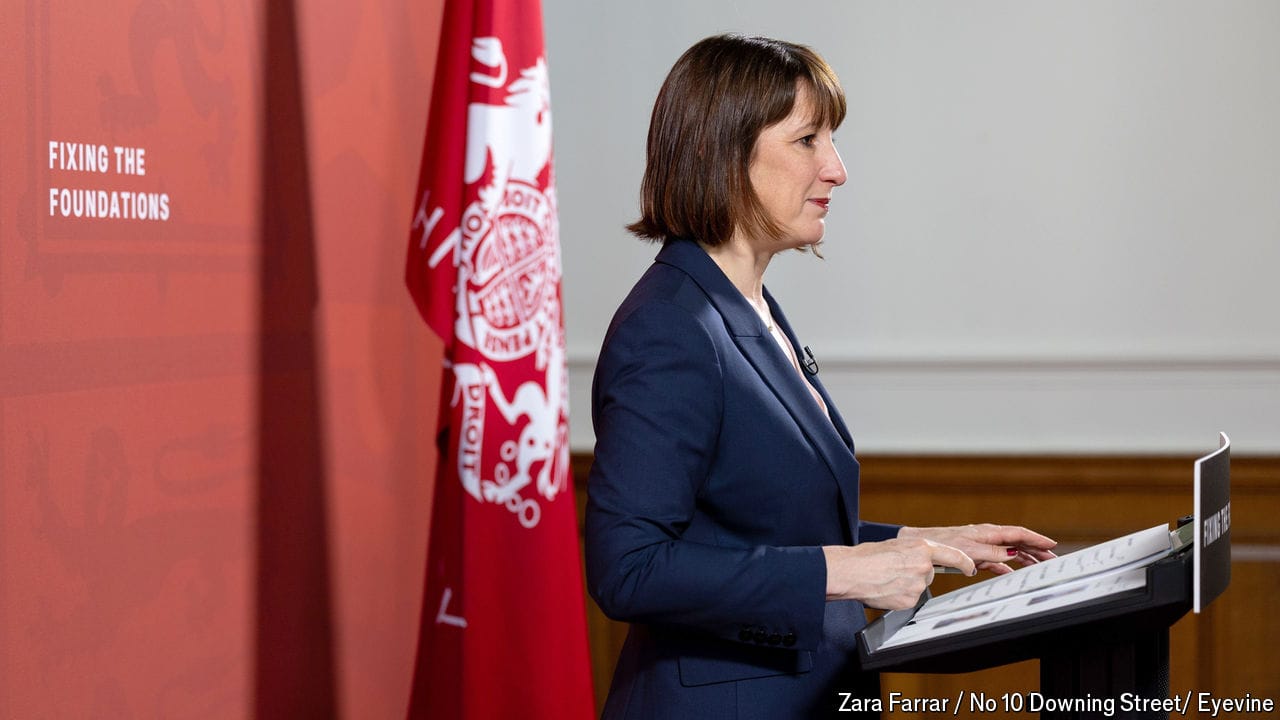Is Britain’s economy finally moving?
Sticky inflation and a weakening job market could still spoil the mood
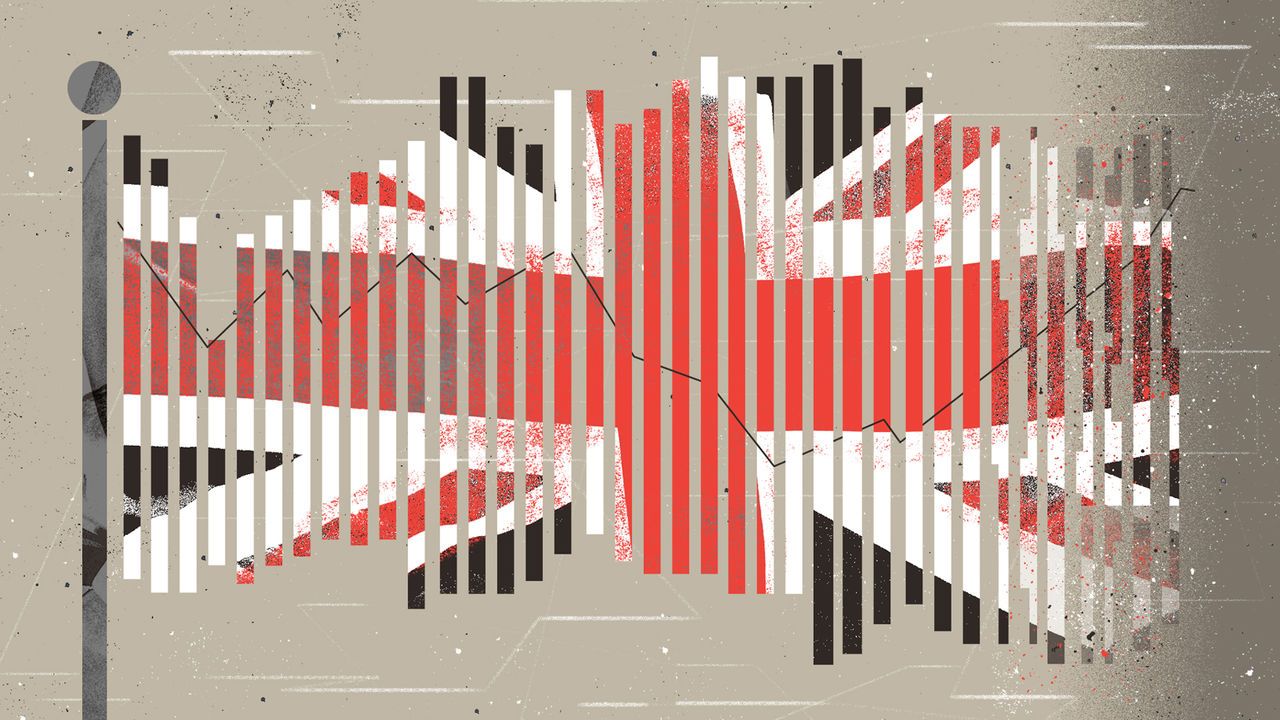
In its first weeks in office the new Labour government is hammering away at one message: on prisons, the National Health Service, the armed forces and more, the Tories left behind a terrible inheritance. It is no different for the economy. Rachel Reeves, the chancellor, says Labour has been handed the worst economy of any incoming government since 1945, when Britain was loaded with wartime debt and its cities pockmarked with craters.
Much of the gloom is warranted. Britain’s productivity record since the financial crisis has been feeble. Parts of the previous government’s agenda, especially around Brexit, contributed to the sense of stagnation. The public finances are stretched thin. Hence Labour’s emphasis on growth: central to its election campaign was a promise to get Britain’s economy growing faster than any other G7 country’s. Muddying the picture somewhat, however, is the fact that a version of this milestone may already have been passed—under the Tories.
Explore more
This article appeared in the Britain section of the print edition under the headline “Is Britain’s economy finally moving?”
Britain July 27th 2024
More from Britain
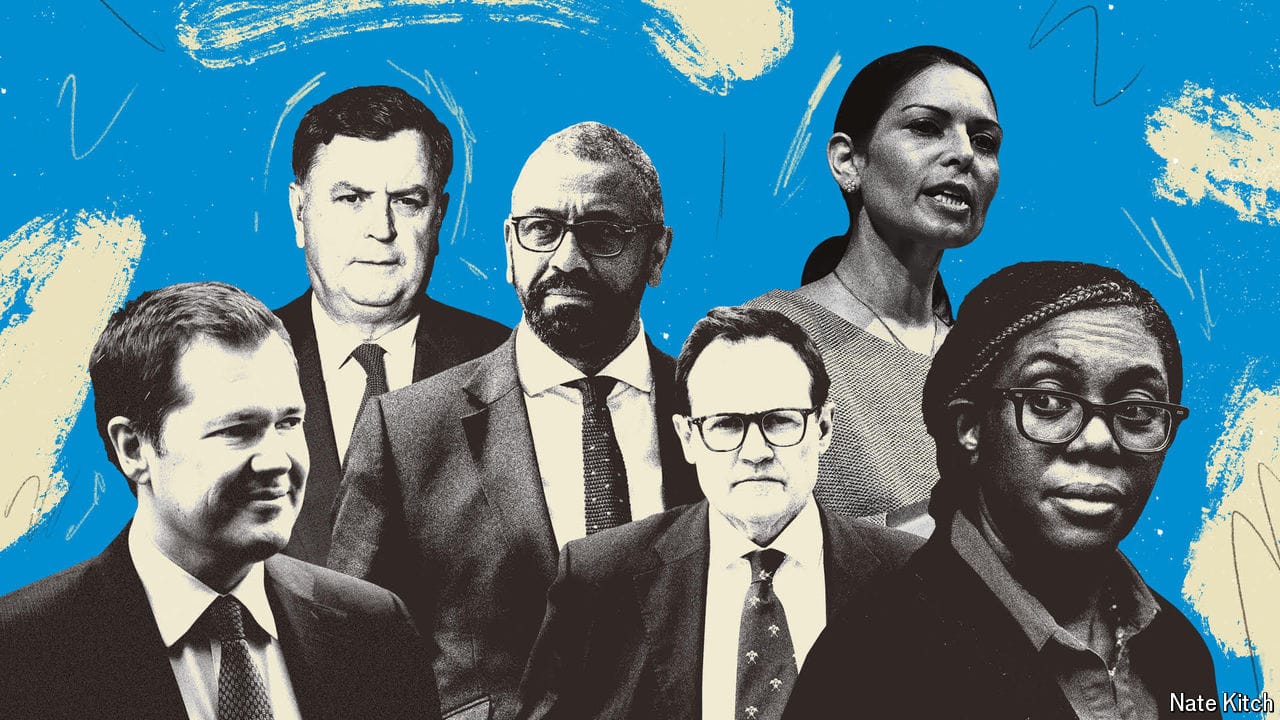
The race to become leader of Britain’s Conservatives
An exhausted party seems to think that it doesn’t have to change
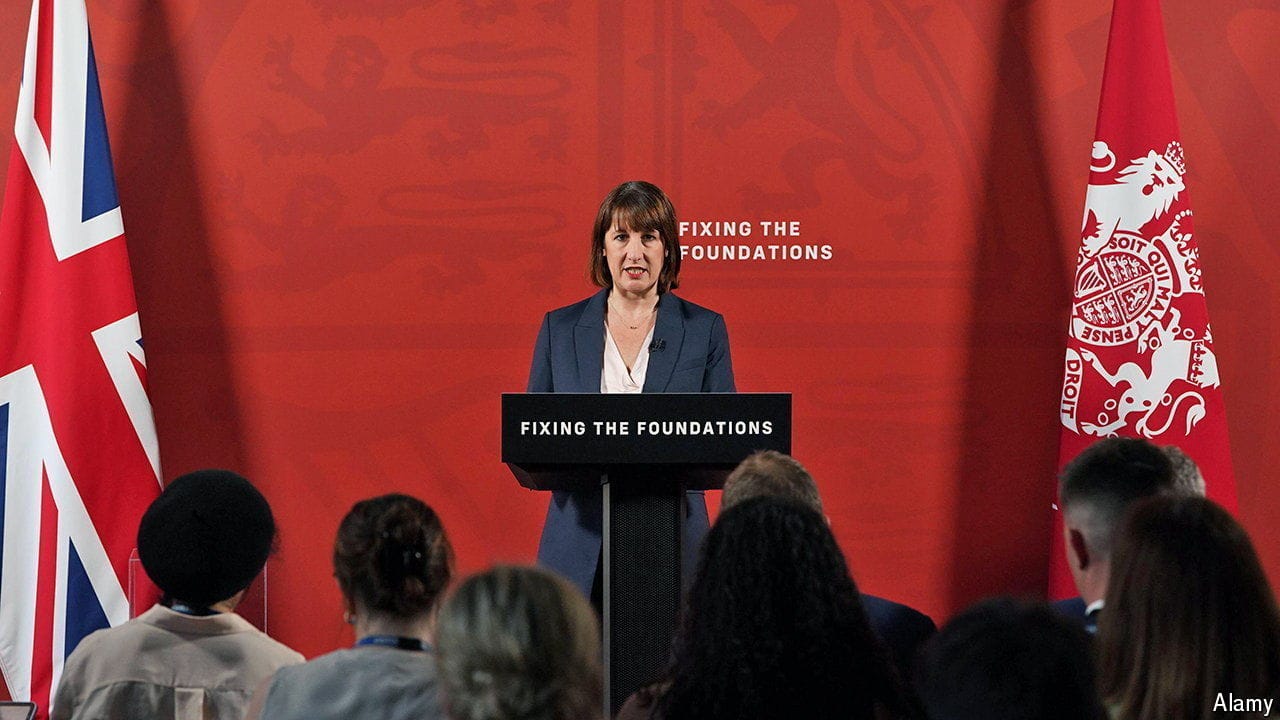
How deep is Britain’s fiscal “black hole”?
Rachel Reeves sets out her first big decisions as chancellor
Shabana Mahmood, Britain’s new Lord Chancellor
The new justice secretary is both progressive and religious
How King Charles III counts his swans
A ritual that pleases conservationists and annoys the birds
Britain’s army chief fears war may come sooner than anyone thinks
Could the army cope without more money and troops?
